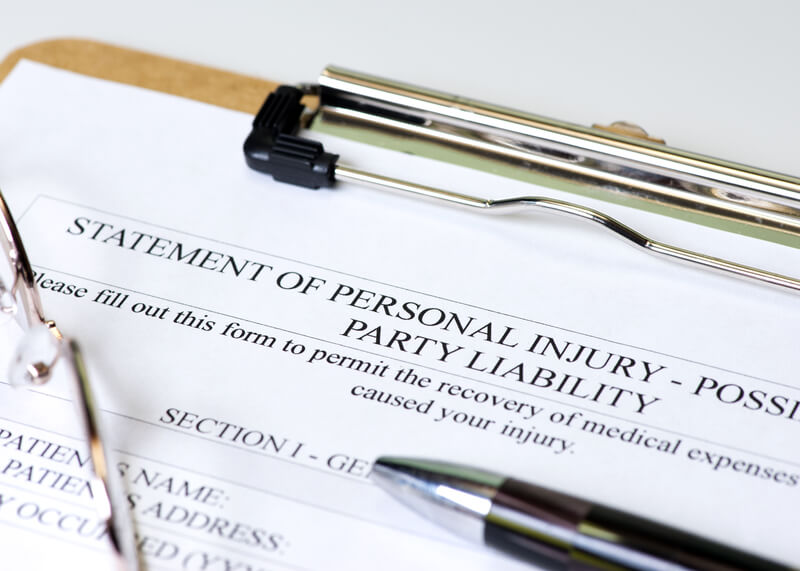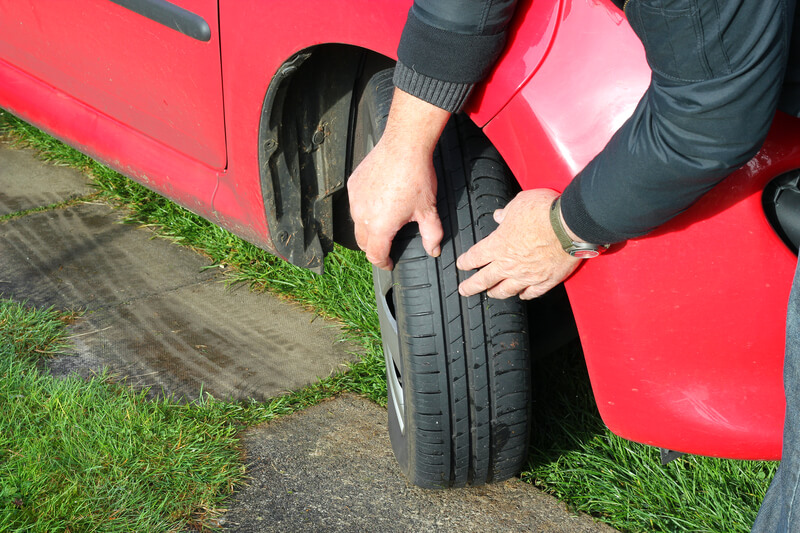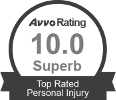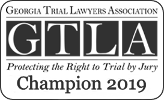Drunk driving cases are among the most tragic, upsetting personal injury cases for one major reason: They’re entirely preventable. While everyone understands that driving has inherent risks, encountering an impaired driver shouldn’t be a risk we face.
Unfortunately, about 37 people die each day in drunk driving accidents around the country, according to the National Highway Traffic Safety Administration (NHTSA). Those numbers have been on the rise in recent years, with a 14 percent increase in fatalities between 2020 and 2021.
In Georgia, it’s illegal to drive with a blood alcohol concentration (BAC) of .08 grams of alcohol per deciliter of blood (g/dL), but drivers often get behind the wheel anyway. Twenty-four percent of Georgia crash fatalities in 2019—the most recent year analyzed—were related to alcohol impairment, according to the Georgia Governor’s Office of Highway Safety.
While we can all take individual actions to help prevent drunk driving, including always driving sober ourselves, helping our loved ones choose sober driving and teaching the young people in our lives that any level of impairment is unsafe, it’s also helpful to know how to detect, avoid and report drunk drivers. If you’re hit by a drunk driver, it’s also critical to know how to proceed.
When are you most at risk for being hit by a drunk driver?
Alcohol-impaired driving can occur at any time in any place, but it’s unsurprisingly most common on weekends and late at night. Midnight to 3 a.m. is the highest-risk time period for fatal alcohol-impaired crashes, according to the NHTSA, followed by 3 a.m. to 6 a.m. Even if you can’t readjust social plans or night-shift schedules, staying alert and aware when driving between midnight and 6 a.m. can help prepare you for dangerous drivers.
Summer celebrations also often lead to an increase in drunk-driving crashes, spiking around Memorial Day, the Fourth of July and Labor Day. December holidays, too, cause an influx of impaired drivers on the road. When planning your holiday celebrations or schedules, ask if there are drives you can shift or avoid. A late-night ride home from a lakeside summer BBQ could become an overnight trip. A NYE night out could become a neighborhood party or a cozy dinner in.
Recognize the warning signs of drunk driving
While there isn’t always the chance to recognize a drunk driver or spot signs of intoxication on the road before an accident occurs, it does help to know what to look for.
Be especially cautious when you spot someone:
- Weaving or drifting in and out of lanes
- Riding the center line
- Braking erratically or quickly accelerating
- Tailgating
- Driving well below the speed limit
- Driving without headlights at night
- Signaling incorrectly
- Hitting the curb or narrowly missing other cars
- Driving on the wrong side of the road
If you spot a suspected drunk driver, try to keep your distance and note any identifying details, including:
- The make and model of the car
- Your location
- The direction of travel
- The plate number
Once you’ve gathered what information you can safely, pull over and call 911. By contacting the authorities, you can help get an unsafe driver off the road, potentially saving that person’s life and the lives of others before a crash happens.
Have a plan if you’re hit by a drunk driver
If you are hit by a suspected drunk driver, call 911 and get the medical attention you need. Be sure you understand how to get a copy of the responding officer’s accident report and, if you’re able to do so safely, document the scene with photos and notes—just as you would with other crash types.
If the driver is unable to exchange information due to intoxication, make a note of this, inform the responding officer and be sure you have a way to get the information you need.
While it’s helpful to quickly write down your account of the crash while your memory is fresh, don’t share details on social media while your case is in progress.
What to know at the scene of an accident
If you’ve been involved in a drunk driving auto accident, take the following steps:
- Get to a safe place – If you are on a main road and you can safely navigate to a side road, do so. This makes it easier for first responders to access you and limits the potential for another accident.
- Document the scene – As much as you are able, try to document the scene. Write down or take a picture of motor vehicles involved, license plate numbers, property damage, etc.
- Get a police report – Call law enforcement to the scene. A police officer is able to write a police report that will identify the at-fault driver, any field sobriety tests that were conducted at the scene, as well as any tickets or arrests that may have been made. The police report is often made available to the individuals involved and their driver’s insurance company electronically a few weeks after the accident.
- Seek medical attention – If you are injured, but do not require medical attention at the scene, you may choose to follow up with a doctor after the accident. Keep documentation of all medical expenses and records, as these will become important if you choose to pursue an accident case.
How drunk driving cases work in Georgia
DUIs can be among the more complex personal injury cases, and attorneys often have to obtain information about previous DUI convictions, toxicology reports and police bodycam recordings. Insurance companies will often try to settle quickly and lowball victims—something an experienced car accident attorney will help avoid. Your accident lawyer will work to show that the other driver was negligent, and documenting intoxication is often enough to prove this.
Sometimes drunk driving cases also result in criminal DUI charges, but this isn’t always the case. If you pursue a civil claim against a drunk driver, it will be separate from any criminal DUI case also stemming from the accident.
Drunk driving crashes sometimes involve more than one party. Georgia’s dram shop law allows injured parties to hold alcohol sellers liable, in some cases, for the accidents caused by their customers. If a bar, restaurant or liquor store knowingly sells to someone who is under 21 or someone who is visibly intoxicated, and if they know that person will soon drive, they could be held liable.
Similarly, Georgia’s social host liability applies to individuals who continue to serve noticeably intoxicated guests alcohol even when it’s clear the guests plan to drive.
What does alcohol do to a driver?
While it’s illegal to drive with a BAC of .08 or higher, or a .02 BAC if under 21, many people assume that impaired driving only happens at the legal limit. But problems arise even below that point. According the NHTSA:
- With a BAC of .02, there’s already a loss of visual function and ability to maintain attention on more than one thing at once.
- At .05, people may experience coordination challenges, have trouble tracking moving objects and see a slower response time.
- With a BAC of .08—the legal limit—it’s harder to process multiple streams of information, short-term memory becomes a problem, and it’s challenging to concentrate.
- At .10, intoxicated drivers usually have trouble maintaining lanes and braking and accelerating normally.
- With a BAC of .15, drivers will often be reaching the point of sickness and have major muscle control issues.
Drunk driving risk factors
Driving under the influence can result in legal and civil charges, but it’s also a major public health problem—one that puts anyone on the road in danger. As a public health problem, the Centers for Disease Control and Prevention (CDC), works to identify risk factors and study the effectiveness of interventions and deterrents.
According to the CDC, the people drunk drivers most often hurt are themselves: 62 percent of those who die in an alcohol-related crash are the drunk drivers. Risk factors for drunk driving include:
Age: Any amount of alcohol is illegal for teens, even if they are below the legal limit for adults 21 and up. But teens are also more at risk for crashes—they have a higher chance of being involved in a crash than an adult motorist with the same BAC. Teen passengers are also at risk, and some may have a hard time speaking up or understanding their options for a safe ride home. Among high school students in 2019, 17 percent reported that they’d ridden in the past 30 days with a driver who’d been drinking alcohol.
Young adults ages 21-24 and 25-34 are also highly at risk, accounting for the largest percentage of drunk drivers with BACs at .08 or higher in 2021.
Gender: Men are more likely than women to drive under the influence. While 16 percent of female drivers in fatal crashes were under the influence, 22 percent of male drivers were alcohol-impaired at the time of the fatal crash.
Vehicle type: Motorcyclists are more likely to drive under the influence than drivers of cars, trucks, SUVs or other vehicles. Of motorcyclists involved in fatal crashes in 2020, 27 percent were under the influence. It’s also notable that riding motorcycles requires high levels of coordination, spatial awareness and balance, and any amount of alcohol has a negative effect on driving ability.
A history of DUIs: While DUI laws are meant to heavily punish repeat offenses, some drivers continue to drink and drive. Drivers with DUI-level BACs involved in fatal dui accidents were four times as likely to have previous DUIs or DWIs than drivers with no alcohol in their system.
What are the penalties of drunk driving? Georgia DUI laws
If you’ve been hurt by a drunk driver, you’re probably wondering what consequences they may face. Georgia has strict DUI laws, with increasingly severe punishments for repeat offenders. Again, any criminal prosecution for the DUI will move separately from your personal injury claim against the driver. In the Atlanta area, first-time DUI convictions number in the hundreds each year per county—324 in DeKalb, 376 in Fulton, 540 in Cobb and 707 in Gwinnett.
Under Georgia law, DUIs cover driving while under the influence of alcohol or drugs. According to the Georgia Governor’s Office of Highway Safety:
A first offense might result in:
- Jail time of up to a year
- Fines of up to $1,000
- License suspension of up to a year
- 40 hours of community service
A second-time offense within five years of the first might result in:
- Mandatory 48-hour jail stay and additional time of up to one year
- Fines of up to $1,000
- License suspension of up to three years
- 30 days of public service
- A required clinical evaluation and possible treatment program
A third-time offense within five years of the second might result in:
- A minimum of 15 days in jail and additional time of up to one year
- Fines of up to $5,000
- Driver’s license lost for five years
- Minimum of 30 days community service
- Name, photo and address published in local newspaper as a habitual violator
- License plate seized
- Required clinical evaluation and possible treatment completion
A driver with a DUI conviction will also face insurance consequences. The defendant’s own insurance can cancel policies or raise rates for drivers who’ve had their licenses suspended.
Be an advocate for safe driving
Driving under the influence puts us all at risk, and it will take individual, community and government effort to end this public health problem that takes so many lives each year.
As a driver, never drive after you’ve been drinking, even if you only feel buzzed. According to the NHTSA, in 2021, 2,266 people were killed in alcohol-related crashes where a driver had a BAC of .01 to .07 g/dL—below the legal limit for a DUI. If you’re planning to drink, make plans ahead of time for how you’ll get home, whether that’s a ride with a designated driver, a rideshare or a cab. Also, if you take prescription medications, be aware of how they mix with alcohol.
There’s a lot you can do within your own community to reduce drunk driving, especially if you’re a young person or have young people in your life. If you’re out with friends, don’t let them drive home while intoxicated, and refuse to drive with them if they are. If you’re hosting, plan ahead with designated drivers or help call rideshares if friends can’t do so on their own.
If you have a teen just starting to drive, be open about your expectations regarding alcohol and driving. In addition to the risk of being in a crash, DUI laws for underage drivers are incredibly severe. Choosing to drink and drive—even if it’s not to the point of intoxication—can seriously derail a teen’s future and make it impossible to drive to school, college or work. Teens may face sports suspensions, lose college scholarships, potential criminal charges, or not be admitted to their college of choice with a DUI on their record.
Because teens are also at risk when they drive with friends who’ve been drinking, it’s important to go over what they should do if they need help getting home from an unsafe situation—even if they’ve broken house rules about curfews or underage drinking.
And while there’s a lot that individuals can do to make driving under the influence socially unacceptable, legal and public safety deterrents can do a lot, too. Many countries have BAC of .05, a lower limit that better covers dangerous intoxication and makes it clear that buzzed driving is not acceptable. Currently, Utah is the only state with a BAC of .05: There was an 18 percent drop in the vehicle crash death rate per mile driven the year the law went into effect.
Ignition interlocks can help people convicted of DUIs from reoffending, but we also might be only a few years out from intoxication monitoring technology debuting in all new vehicles. It’s likely that the new technology will be more closely akin to advanced safety features that monitor the driver’s control and reaction rather than an ignition interlock that requires constant breathalyzer tests.
Public infrastructure can also help reduce the risk, with public transportation running in the evening and late-night hours to provide alternatives to sometimes expensive rideshares and cabs.
Know your legal rights
If you’ve been hit by a drunk driver, you may choose to seek compensatory damages through a personal injury lawsuit. Injuries as a result of a drunk driving accident can result in large financial losses for you and your family – not to mention the non-economic damages of changes to your overall well-being. Explore your legal options with an experienced car accident lawyer specializing in drunk driving accident claims.
Attorneys for drunk driving victims
If you’ve been hurt by a drunk driver, you need a personal injury lawyer and law firm who understand the complexity of these crashes. If you need help, contact the personal injury attorneys at Litner + Deganian for a free consultation and case evaluation.












